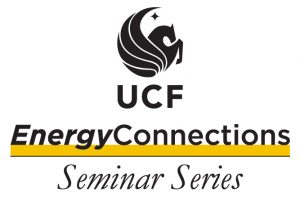Electric Vehicles: At the Intersection of Transportation and Energy
Presented by: Dr. Paul Brooker
When: September 21, 2016 @ 11 a.m.
Location: FSEC, 1679 Clearlake Rd., Cocoa, FL 32922. Auditorium
Since the introduction of the automobile in the early 1900’s, there has traditionally been a separation between transportation energy and residential/commercial/industrial energy. With electric vehicles on the rise, however, energy will need to flow freely between vehicles and the grid.

As we move towards this intersection, we will begin to encounter conflicts between the needs of the vehicle owner and the desires of the grid/building energy operator. For example, the electric vehicle owner is concerned about getting home every day, and ensuring that the battery’s lifetime is not adversely impacted. The grid operator is concerned with maintaining high power quality and reducing the risk of outages as renewable energy sources are increasingly added to the mix. Understanding distinctive needs of each user will lead to better management of energy flows that can benefit transportation, the grid, and society as a whole. This presentation will explore how the needs of the vehicle may be met, while also providing added value to the grid.
Dr. Paul Brooker Biographical Sketch
Dr. Brooker received his B.S. in Chemical Engineering from Brigham Young University in 2004 and his Ph.D. from the University of Connecticut in 2009. After graduating, Dr. Brooker came to UCF’s FSEC, where he has participated in research ranging from fuel cells to electric vehicles to solar photovoltaics.
Within the DOE-sponsored Fuel Cell High Temperature Membrane Working Group at FSEC, Dr. Brooker’s role was to apply electrodes onto novel membranes, and to investigate the performance in an operating fuel cell environment. In addition, Dr. Brooker investigated the use of heteropolyacids (HPAs) for reducing membrane degradation during accelerated stress testing. As part of the Electric Vehicle Transportation Center (EVTC), Dr. Brooker has modeled the use of fuel cells in electric vehicles, as well as electric vehicle infrastructure needs. His research is investigating the potential for fuel cell vehicles to contribute to energy needs beyond transportation, such as grid ancillary services, back-up power, and distributed energy resource management. Dr. Brooker is a project leader within the Photovoltaic Manufacturing Consortium, where he is directing research on diamond wire slicing of silicon ingots. This research is investigating methods to understand diamond wire wear and its effect on the surface of the cut wafer. This understanding could lead to improved control of wafer surfaces, reduced consumption of diamond wire, and increased wafer throughput, all by optimizing the slicing parameters.